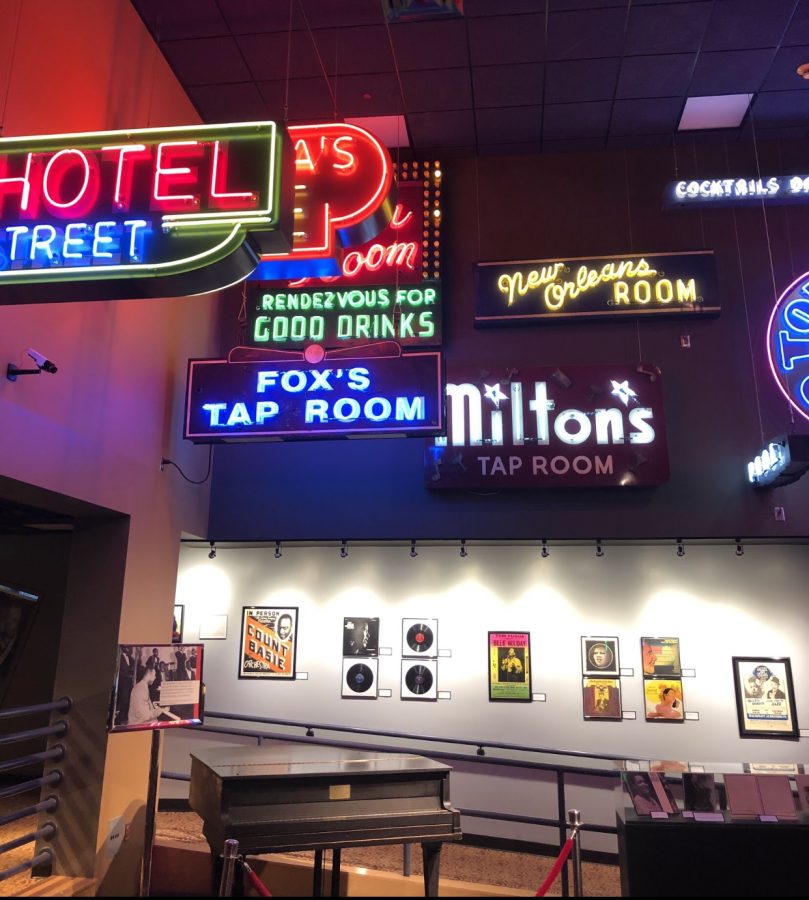First Lady of Song Sings On
A visitor’s view of the St. Louis Jazz Museum is shown. Nicknamed the First Lady of Song, Ella Fitzgerald’s exhibit showed elements of her life.
April 25, 2022
With classics like “A-tisket, A-tasket,” and “Cheek to Cheek” with Louis Armstrong, anyone is sure to love sweet-singing jazz icon Ella Fitzgerald.
The 25th of April marks her 105th birthday. Even years after her death, her musical talent and influence lingers on, even when it goes unnoticed. Perhaps most striking was her ability to improvise musically, using her signature scat-style. Fitzgerald could also impersonate swing and jazz instruments like trumpet. Her ability paired well with contrasting sounds, such as Armstrong’s gravelly voice.
“I enjoy ‘Moonlight Serenade’ and ‘Two Little Men in a Flying Saucer’ because they feel like songs that would be in Disney movies like Princess and the Frog,” Emma Thomas, a Junior at Grand Ledge High School says. “I love how ‘Moonlight Serenade’ sounds like a love song or conversation,” Thomas continued.
Aside from her stage life, Ella Fitzgerald was good-natured and reserved, yet she had a fierce character. Her resilience was drastically shaped by the trouble of her early life. This patch included the split of Fitzgerald’s parents, a move to New York, and the death of her mother, Tempie. Ella’s biological father was never in the picture.
Eventually, Fitzgerald ended up in a reform school where she was severely abused, and beyond her escape, she was alone on the streets during the Great Depression, at fifteen.
Astonishingly, Fitzgerald remained earnest and carried her “pick up from here and move on” attitude.
She faced many hardships during her time but Fitzgerald was strong, especially with the descrimination faced on tour of the South. Later in life, she would tell Fred Robbins in a lost 1963 interview, “… it makes you feel so bad to think that we can’t go down through certain parts of the South and give a concert like we do overseas and have everybody just come to… enjoy the music because of the prejudice thing that’s going on…”
She never let this get the best of her. And even so, Fitzgerald had her supporters by her side. With the help of Marilyn Monroe, she was able to perform in the segregated Mocambo Nightclub during the 1940s.
Not only did she break that barrier, Fitzgerald sold over forty million albums to her American listeners and was awarded the National Medal of Arts by Ronald Reagan in 1987.
Ella Fitzgerald was an eager spirit who continued to sing even as her health began to decline. We can look up to her spirit today as one to foster.
Need a little sweetness or swing in life? Play some of her songs and they’re sure to make any listener melt.


